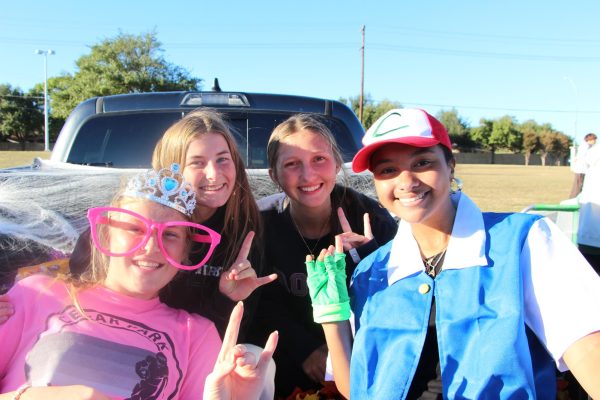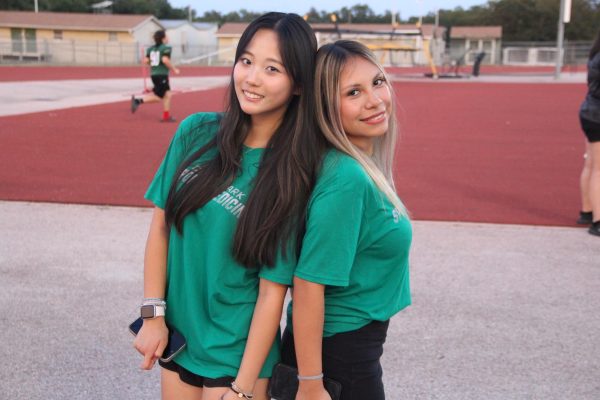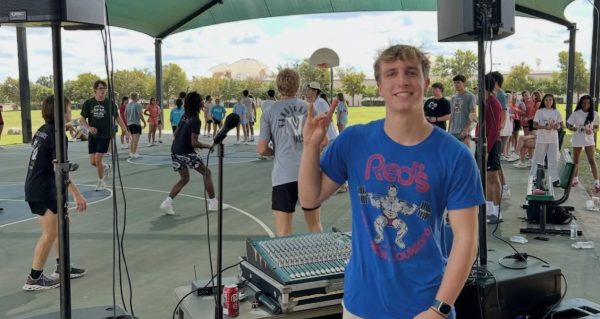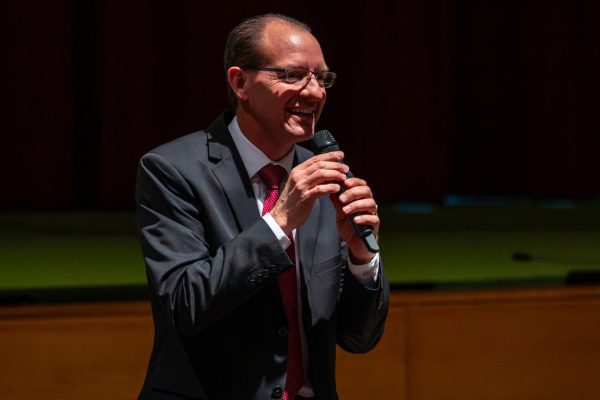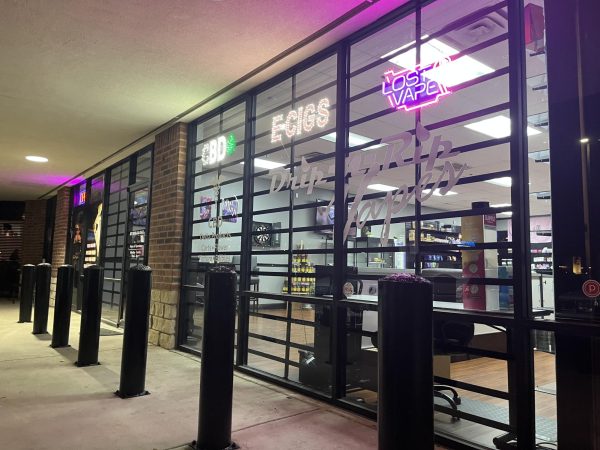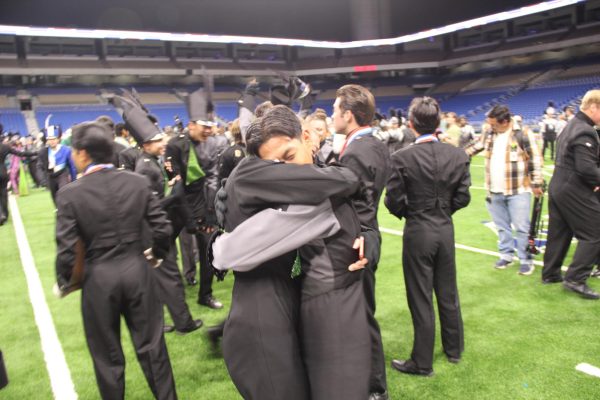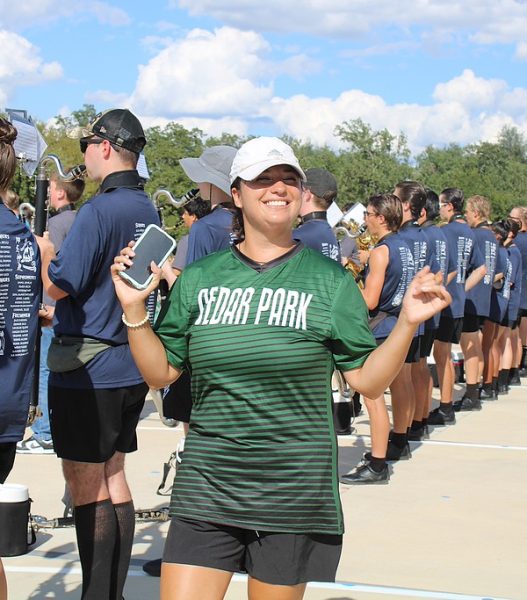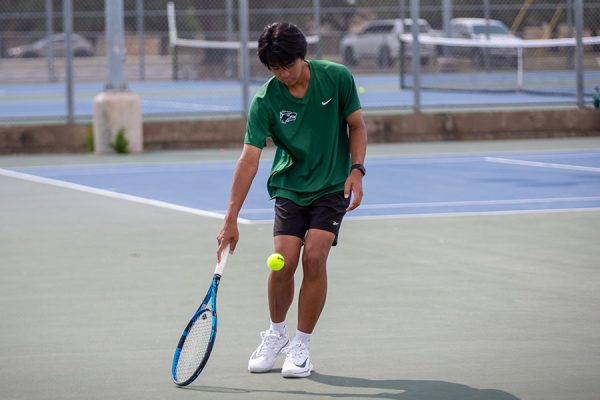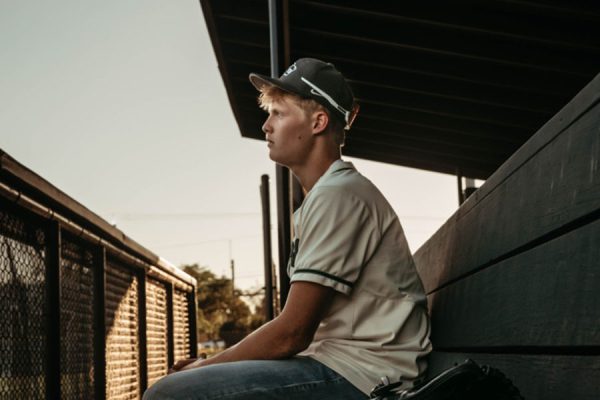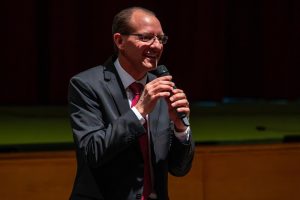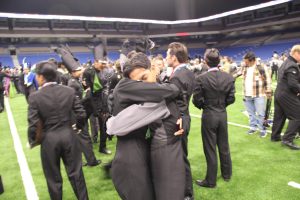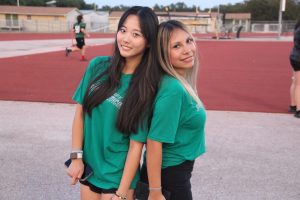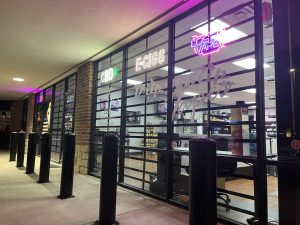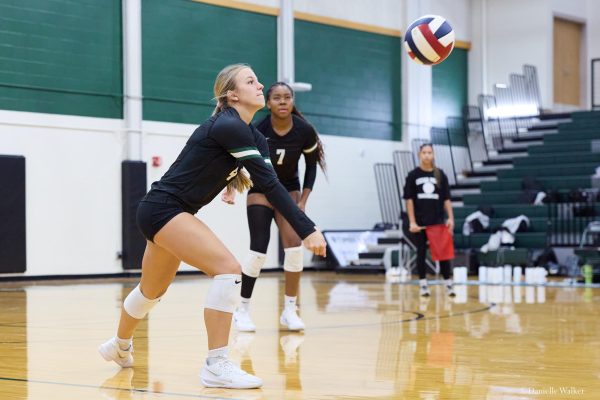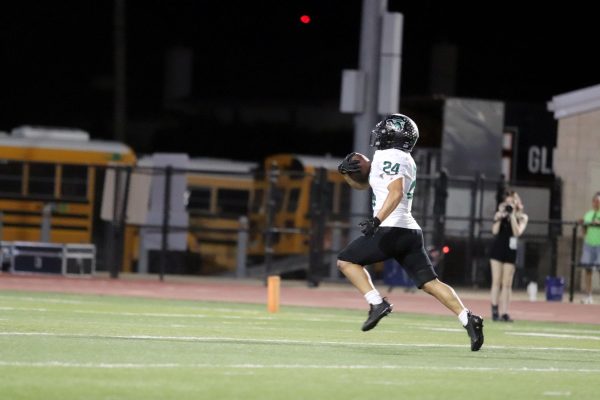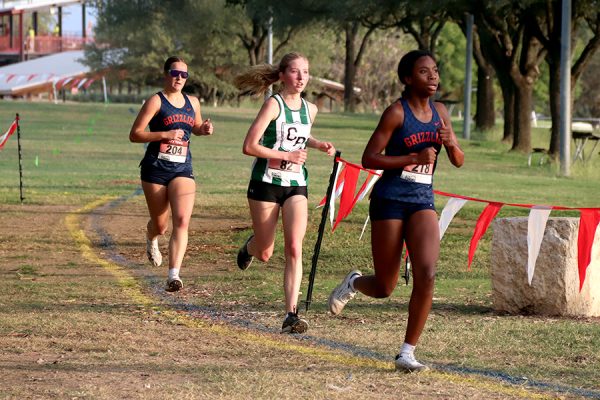The Face of Change
Senior Entrepreneur Creates Clubs, Promotes Inclusion
Speaking at a Youth Toastmasters 4-H Club meeting, senior Deana Trautz completes an impromptu table topic. Trautz formed the club last March, creating the first youth Toastmasters club in all of Austin. “Table topics give all of our members an opportunity to learn impromptu speaking, which is a skill we use every day,” Trautz said.
May 3, 2019
Everyone has heard the cliche phrases coined around the idea of being a positive change in the world and making a difference no matter how big or small. For some, this difference means recycling plastic water bottles or talking to a new student at lunch, however, for senior Deana Trautz, this difference is all about changing her community with innovation, insight and inclusion.
Over the past two years, Trautz has found herself involved in a variety of activities and organizations, including running a self-made earring business, overseeing the high school’s nationally ranked newspaper, participating in weekly GSA meetings and acting as the presiding founder and rotating officer for a local public speaking club. Despite these many obligations, Trautz said she still seeks ways to make impactful differences that she feels changes her community for the better.
In her junior year, Trautz attempted to join the Lakeline Toastmasters club, a public speaking club for adults, to become a better speaker. Because she did not meet age requirements, she was formally unable to become a member. Trautz took it upon herself to ensure that she and other youth in the community could improve their speaking skills.
Taking to social media through Nextdoor.com, Trautz recruited 20 kids in the local area, as well two adult Toastmasters who wanted to help Trautz in figuring out how to get the club started. Once the club was approved by the 4-H board and a meeting spot was determined, Trautz was able to establish the first youth Toastmaster club in Austin. This club, which meets every Tuesday, aims to promote public speaking and communication where members present written speeches and participate in impromptu table topics.
“Throughout the time that I have been there, I saw really shy kids come in, ones that didn’t have a lot of hope for themselves improving,” Trautz said. “But as they went through more meetings and gave more speeches, I watched as they stepped out from behind the podium, went towards the audience and really just took that leap of confidence.”
According to Trautz, this club has made a difference in coping with her own speech anxiety, as well as giving her more confidence and speaking experience to excel in her leadership positions.
“You can’t always get rid of your anxiety, but you have to find ways to cope and practicing helps to do that,” Trautz said. “Everyone should be able to learn how to communicate with other people even when they’re nervous.”
Looking to provide a voice for students within the school as well, Trautz said that she joined The Wolfpack newspaper staff her junior year, seeking to share people’s stories and shed a light on several topics and students’ experiences. Since then, Trautz has taken on the role of editor-in-chief, where she edits and posts articles, leads staff meetings and runs their social media platforms.
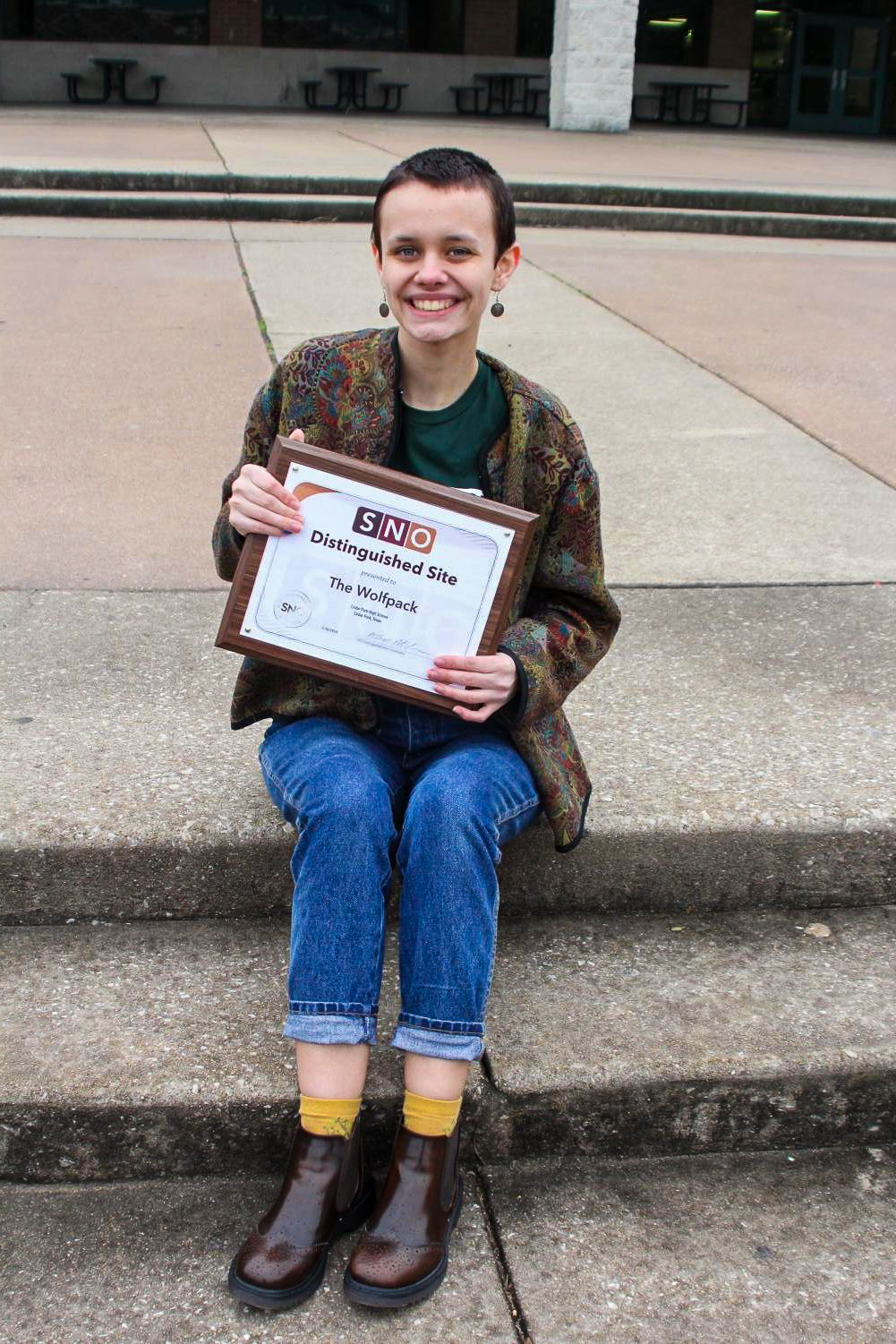
The Wolfpack was named a SNO Distinguished Site in January after earning six badges throughout the fall semester.
“The biggest thing that inspires me to write about something is when there is a topic that is not covered a lot or talked about a lot in the media or at our school,” Trautz said. “Also, if somebody does something that really needs to be recognized and appreciated by our student body, I think that it’s important to give them that validation through writing articles about them or those particular topics.”
Trautz said that writing articles for The Wolfpack, such as her young conservatives perspective piece “Seeing Red” and feature story about the newly enforced transgender military ban, “Won’t be Erased,” has given her a platform to inform her community and bring together perceptually isolated groups of people.
“Sometimes there is a barrier between two groups of people, to the point where they do not get to hear each other out without there being a huge commotion,” Trautz said. “By writing an article about these things, it gives our audience a chance to hear from the different people at our school and help relieve the pressure of a face-to-face confrontation.”
With the intent to eliminate further barriers within the school, Trautz sought various ways to make members of the student body feel more included. To do this, Trautz said that she worked with senior Kaitlin Cantwell and sponsor Rebecca Zabel-Brewer to rebrand the original club, Gay-Straight Alliance, to Gender and Sexualities Alliance. According to Trautz, they were inspired to introduce this new club name after seeing several schools change their name in hopes of establishing a more welcoming club environment.
“It’s really important for students to find validation at school, and when we don’t have a safe haven for LGBT students, it’s sometimes hard for them to find validity,” Trautz said. “Bringing back GSA with the new name was our way to be inclusive from the very start. We don’t want to just be a ‘gay club’ or exclusively for LGBT students. This is a club where all students can come as they are and be welcomed with open arms.”
In addition to making a more inclusive club, Trautz sought to make a more inclusive school as well. Trautz worked with Principal John Sloan and counselor Lisa Semper in educating staff members on the importance of promoting acceptance and respect. Trautz designed posters that included a message saying that “race, gender, orientation, beliefs, backgrounds and ability are respected here.” After a faculty meeting which featured a powerpoint on LGBT, gender and inclusion, these posters were distributed to faculty to hang in their classrooms. Trautz said that these posters are a great way to express the commitment that the school has for its students.
“When students walk into a room and see a sign that promotes inclusion, they know that there is an expectation of inclusion and respect at our school,” Trautz said. “They know that they have a staff that supports respect and supports all people.”

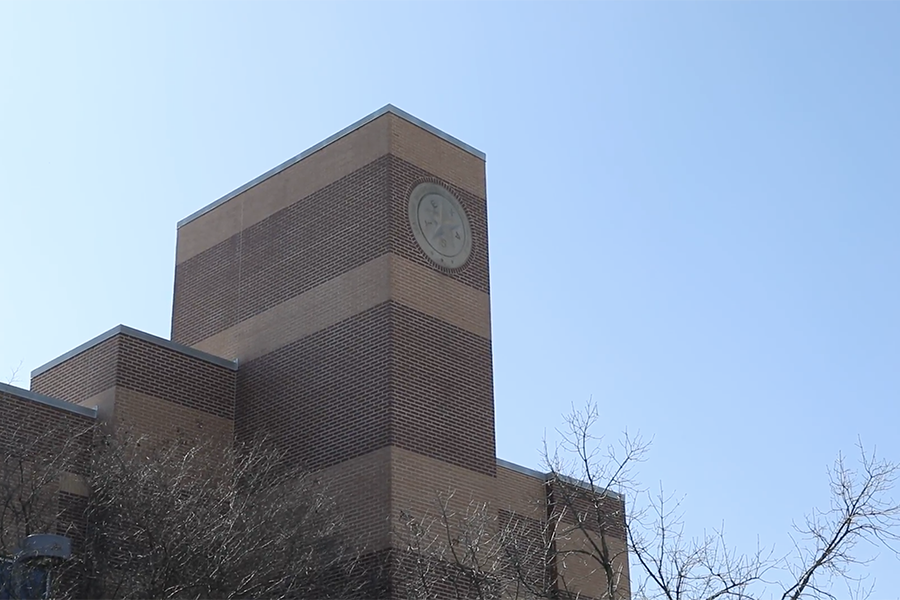
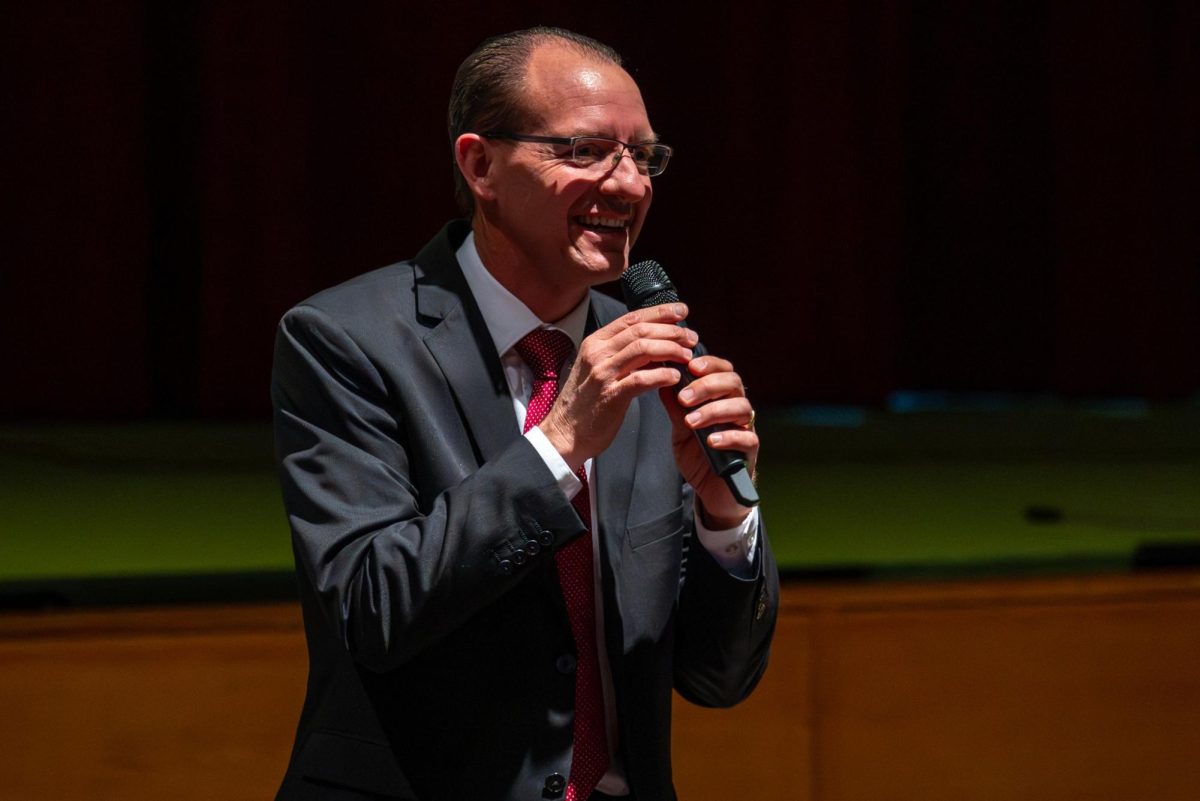
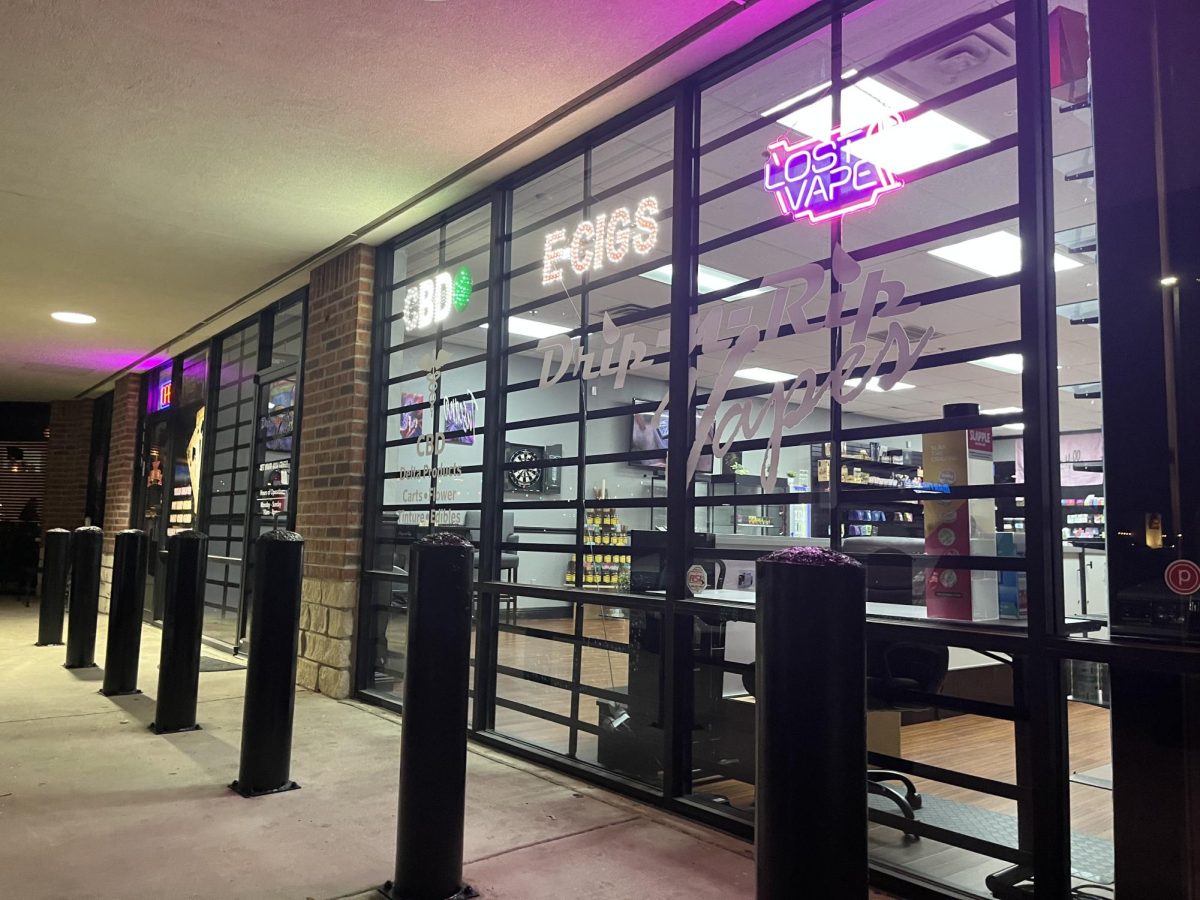
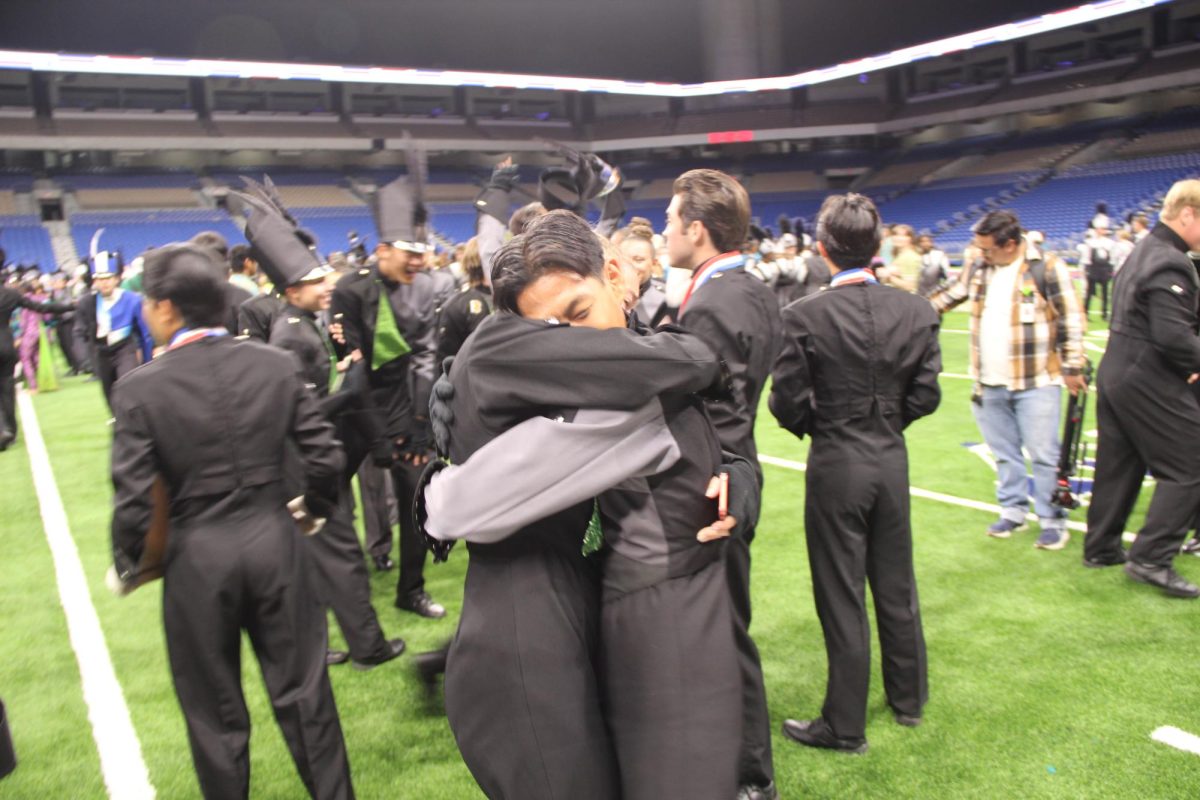
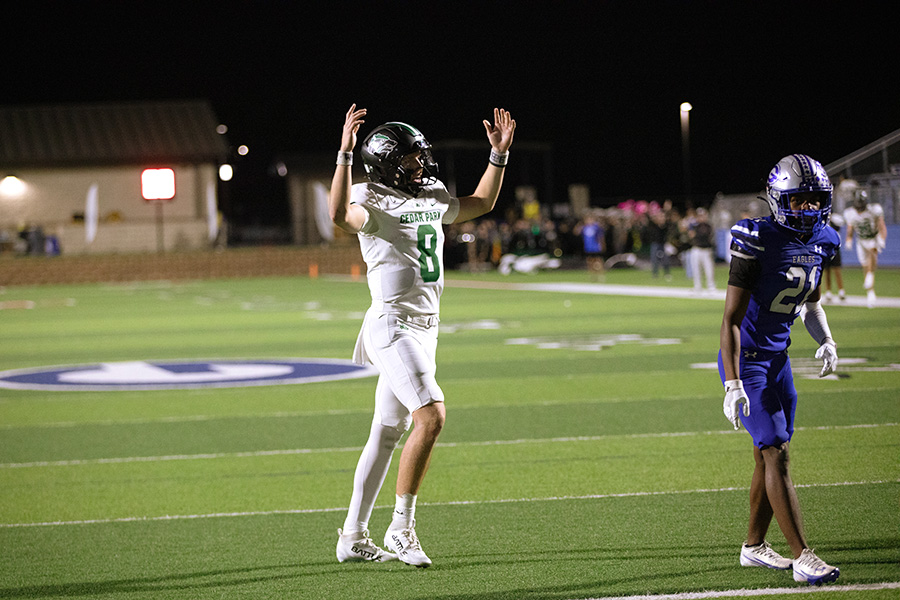
![Senior Jett Mckinney stores all the clothes in his own room, with half of it stored in his closet along with his personal clothes, and the rest taking up space in his room.
“There’s been times [when] there’s so much clothing stored here and it gets overwhelming, so I end up having to sleep somewhere else in the house,” Mckinney said.](https://cphswolfpack.com/wp-content/uploads/2025/11/DSC_0951-1200x800.jpg)
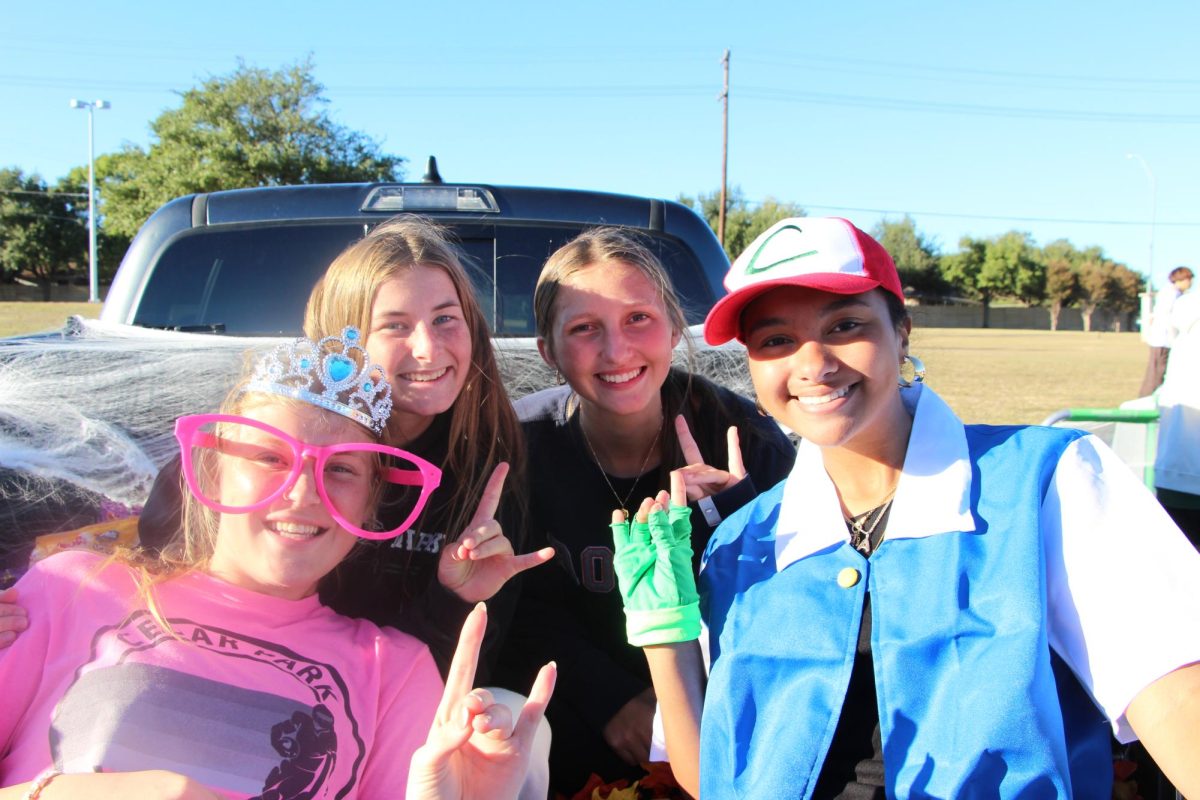


![Broadcast, yearbook and newspaper combined for 66 Interscholastic League Press Conference awards this year. Yearbook won 43, newspaper won 14 and broadcast took home nine. “I think [the ILPC awards] are a great way to give the kids some acknowledgement for all of their hard work,” newspaper and yearbook adviser Paige Hert said. “They typically spend the year covering everyone else’s big moments, so it’s really cool for them to be celebrated so many times and in so many different ways.”](https://cphswolfpack.com/wp-content/uploads/2025/05/edited-ILPC.jpg)

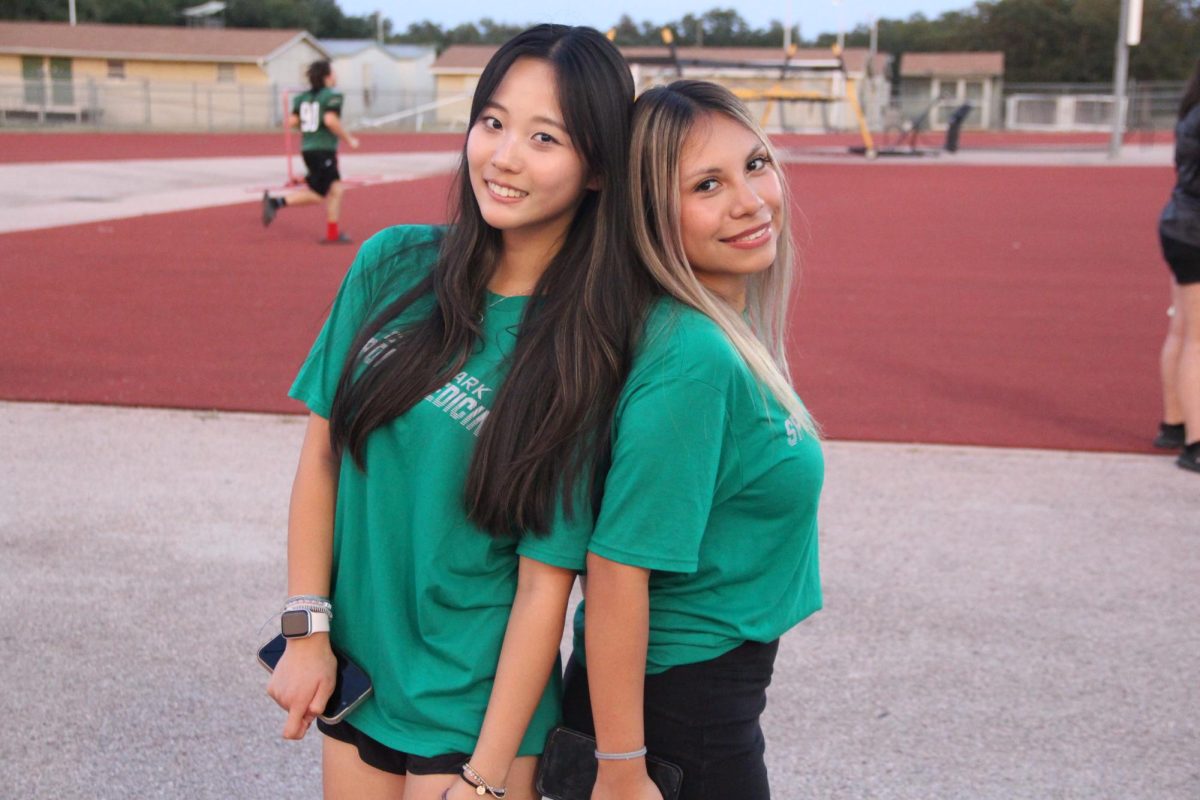


![Looking down at his racket, junior Hasun Nguyen hits the green tennis ball. Hasun has played tennis since he was 9 years old, and he is on the varsity team. "I feel like it’s not really appreciated in America as much, but [tennis] is a really competitive and mentally challenging sport,” Nguyen said. “I’m really level-headed and can keep my cool during a match, and that helps me play a bit better under pressure.” Photo by Kyra Cox](https://cphswolfpack.com/wp-content/uploads/2025/09/hasun.jpg)

![Bringing her arm over her head and taking a quick breath, junior Lauren Lucas swims the final laps of the 500 freestyle at the regionals swimming competition on date. Lucas broke the school’s 18-year-old record for the 500 freestyle at regionals and again at state with a time of 4:58.63. “I’d had my eye on that 500 record since my freshman year, so I was really excited to see if I could get it at regionals or districts,” Lucas said. “ State is always a really fun experience and medaling for the first time was really great. It was a very very tight race, [so] I was a bit surprised [that I medaled]. [There were] a lot of fast girls at the meet in general, [and] it was like a dogfight back and forth, back and forth.” Photo by Kaydence Wilkinson](https://cphswolfpack.com/wp-content/uploads/2025/03/Kaydence-2.7-23-edit-2.jpg)
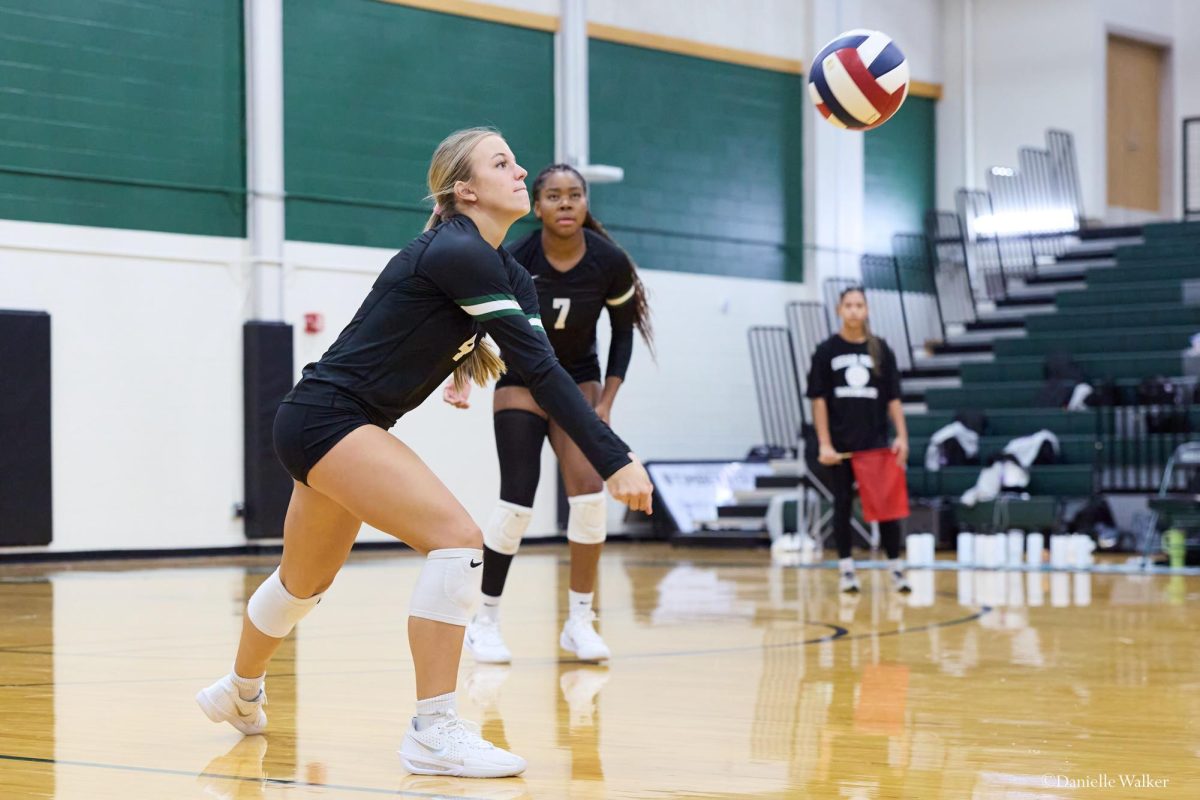

![As her hair blows in the wind, senior Brianna Grandow runs the varsity girls 5K at the cross country district meet last Thursday. Grandow finished fourth in the event and led the varsity girls to regionals with a third place placement as a team. “I’m very excited [to go to regionals],” Grandow said. “I’m excited to race in Corpus Christi, and we get to go to the beach, so that’s really awesome.” Photo by Addison Bruce](https://cphswolfpack.com/wp-content/uploads/2025/10/brianna.jpg)

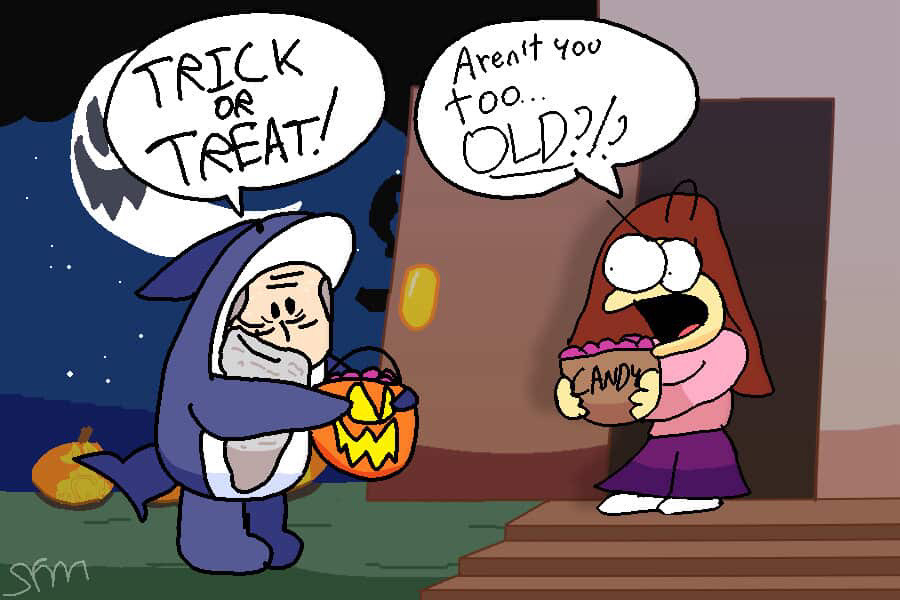













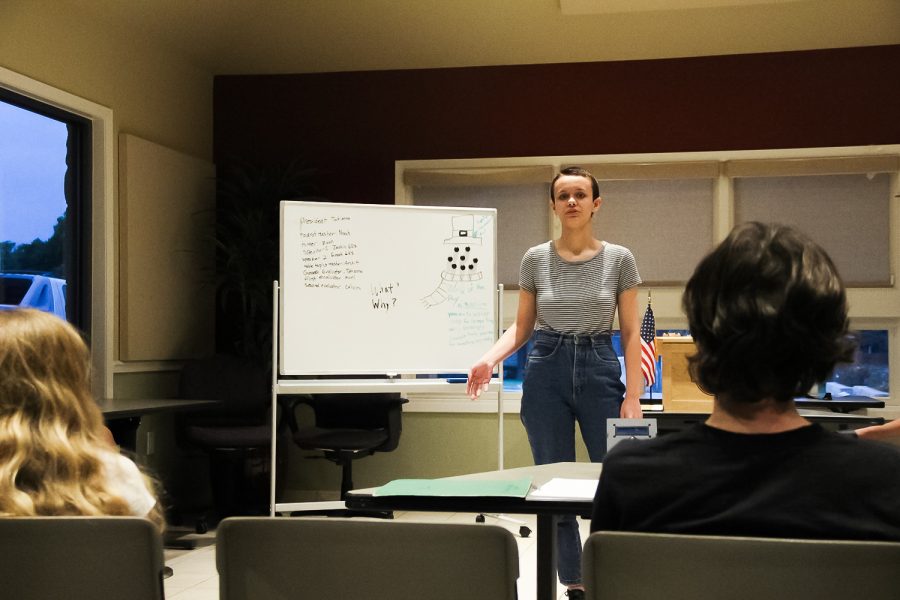
![Holding a microphone, baseball booster club president Chris Cuevas announces the beginning of the annual cornhole tournament. The event has been held for the past two years and is designed to raise money for the baseball program in a fun way. “We’re a baseball team, so people love to compete,” Cuevas said. “So we figured we better do something that gets [their] attention. They want to compete. It’s not a hard sport to do, and we have all different [skill] levels [of participants].” Photo by Henry Mueller](https://cphswolfpack.com/wp-content/uploads/2025/11/Henry-715-1200x900.jpg)
